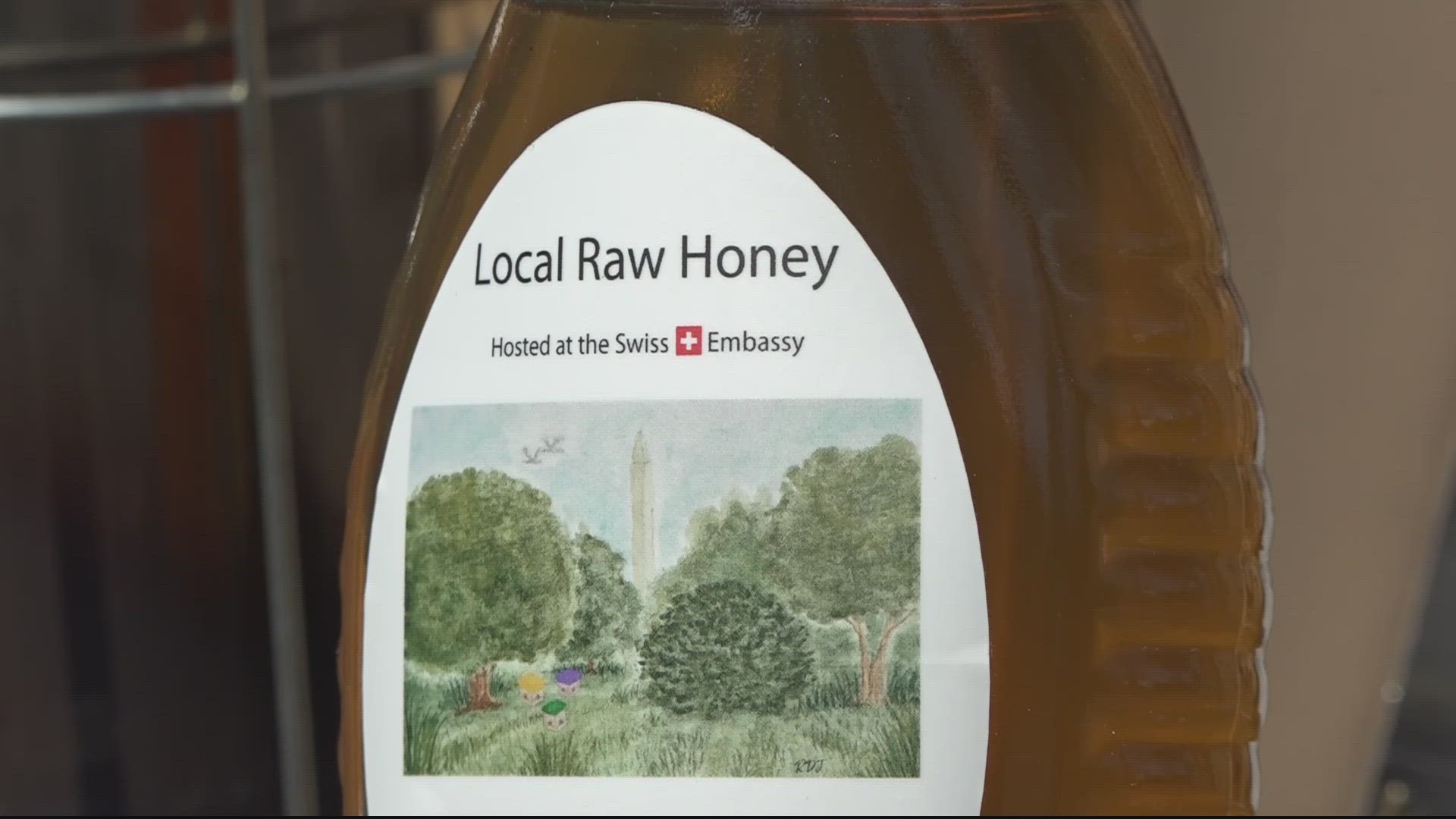WASHINGTON — If you’re dealing with that sniffling, itchy feeling that comes with spring allergy season, you know how sweet relief can feel – and taste. Rising pollen counts has people wondering about home remedies. The most famous of all? Local honey.
The long-standing myth that consuming local honey can help prevent seasonal allergies is a trending search on Google – but does it actually work?
THE QUESTION:
Does eating local honey prevent seasonal allergies?
THE SOURCES:
- Dr. Anjeni Keswani, Associate Professor of Medicine and Director of the Allergy & Sinus Center at George Washington University School of Medicine
- The Asthma and Allergy Foundation (AAFA)
- Sean Kennedy, owner of Bee Curious beekeeping and removal
THE ANSWER:
No, pollen present in local honey is not able to be absorbed into the body in a way that would help prevent allergies - though it can still be soothing for seasonal sufferers.
WHAT WE FOUND:
It’s the season to feel the spring sunshine, smell the flowers, see the blossoms, hear the breeze in the trees, and taste the sweet local honey, hoping it might help you deal with how allergic you are to the rest of it.
“If you buy honey from a local beekeeper, usually you're getting raw, unfiltered honey,” explains Sean Kennedy, who keeps bees at the residence of the Swiss Ambassador in Washington, D.C. through his organization, Bee Curious.
He says the honey isn’t just a tasty sweetener for people – it’s an important source of nutrition for the bees who make it.
“They're gathering pollen, the protein, and they're gathering nectar, which is the sugar, the energy,” he explains. “They put in more nectar and they dehydrate that down and eventually it's honey."
And that means the honey from local bees will have more of a local flavor. "It has all the pollen from everywhere around the neighborhood,” said Kennedy.
That’s why Dr. Anjeni Keswani, director of the Allergy & Sinus Center at George Washington University School of Medicine, understands the buzz around local honey as a remedy for allergies.
“That's actually the whole concept behind allergy shots as well,” she said. “We're thinking, okay, if there's pollens in the area that are captured in the honey and people eat those in small amounts, then over time they would desensitize to the pollen.”
But reviewing studies on the topic, she and The Asthma and Allergy Foundation conclude: there’s no evidence exposure to allergens through ingesting local honey is effective.
“There is some data to suggest that you can help to desensitize patients by exposing them to their pollens. But through our traditional local honey, it doesn't seem to be strong enough to support that,” she said.
The AAFA further explains, the way pollen is digested and broken down changes it from the type of pollen your body needs exposure to in order to desensitize allergies: “You would not ingest enough intact pollen for your immune system to start becoming desensitized to it.”
Dr. Keswani and the AAFA also mention that typically, seasonal allergies are caused by trees, grasses, and weeds – not the flowers bees tend to most often.
“There is pollen in there, but it may not be the quantity that people need and it might not be the right pollens for them,” said Dr. Keswani.
While eating local honey won’t prevent springtime allergies, the sugary substance can help soothe the season’s sting.
“Honey does have anti-inflammatory properties so it can sue the sore throat if that's coming from post nasal drip. It also works very well as a cough suppressant because it helps with the cough reflex in the back of the throat,” she said. “Strictly from an allergy perspective, it may not be effective, but it's probably not harmful.”
It is important to note: the CDC warns never to give honey in any form to children under one year old, as it could present a risk of disease.
And opting for local can be a sweet way to say thanks to the keepers saving the bees in your community.
“Having a healthy honey bee population allows us really to feed our people and feed the world,” said Kennedy.
Watch Next: Why are bees so important to our society?

